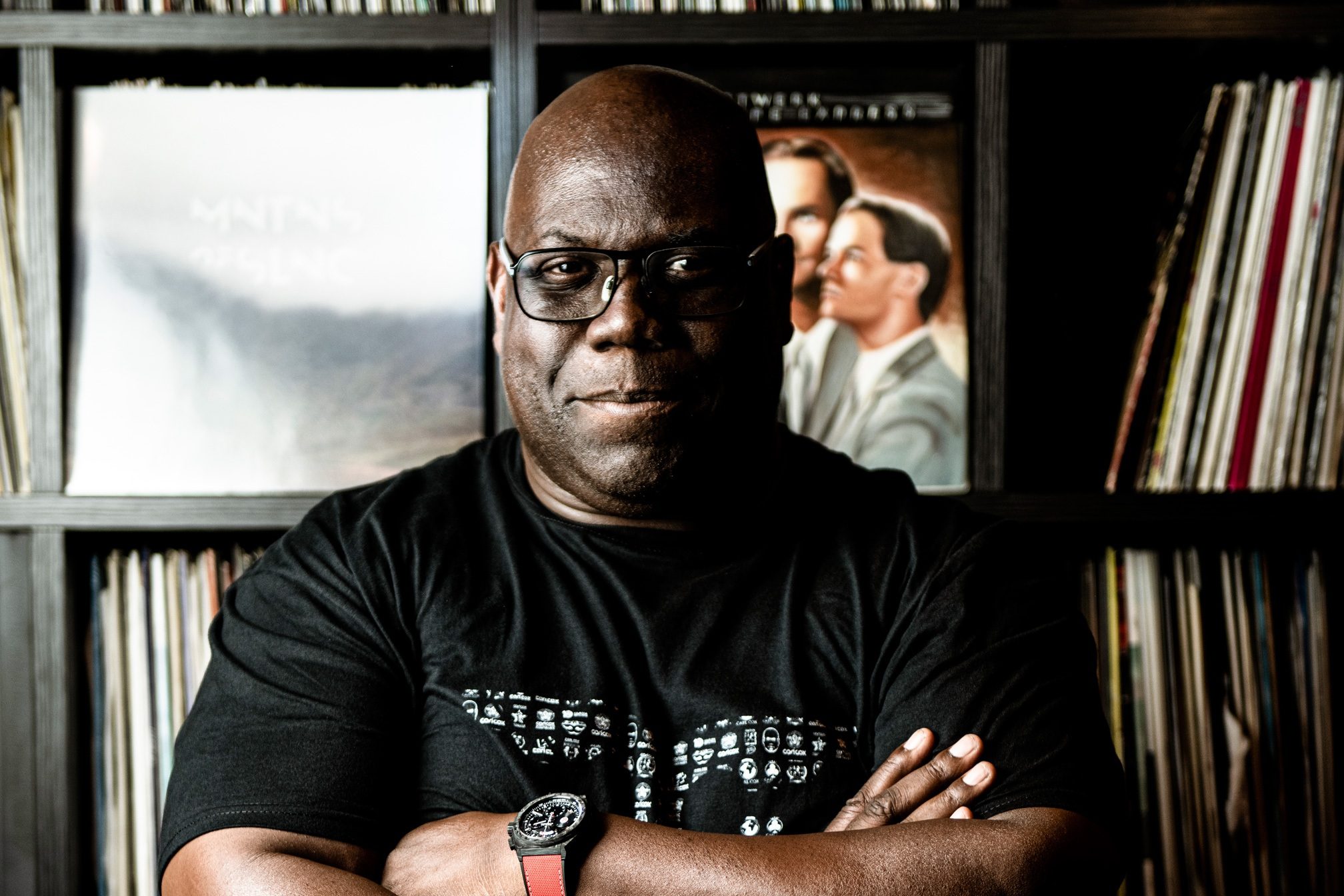 Features
Features
Carl Cox: "It's irresponsible to be partying during the pandemic"
Carl Cox talks to Jasmine Kent-Smith about the new normal for DJs and how he's been adapting to lockdown
Carl Cox was on a US tour when whispers of national lockdowns began to circulate. He soon found himself back at his Melbourne digs, self-quarantining, and living the banana bread-baking and Saturday night’s-in life much of the world experienced simultaneously.
Spurred on by this abundance of free time, and time away from being, well, Carl Cox the Superstar DJ, he started channelling creative energy into live music. Something he’s always loved, but never had the opportunity to fully prioritise. For starters, he dusted off records from his enviable collection and launched Cabin Fever, a live-streamed series with themed shows, throw-back tunes and vinyl wizardry guaranteed.
Read this next: Carl Cox - The Legend
Elsewhere, he released a 19-track album titled ‘Carl Cox Mixes Awesome Soundwave’ on Awesome Soundwave, the live electronic music-dedicated label he runs with artist Christopher Coe. The label, first launched in 2018, plays a vital role in Carl’s quest to find the next Prodigy, Orbital or Underworld. Plus, he recently performed live as part of a Awesome Soundwave showcase for Mysteryland 2020's virtual edition.
We chatted with Coxy about his live music ventures and got his thoughts on dance music’s past, present and future.
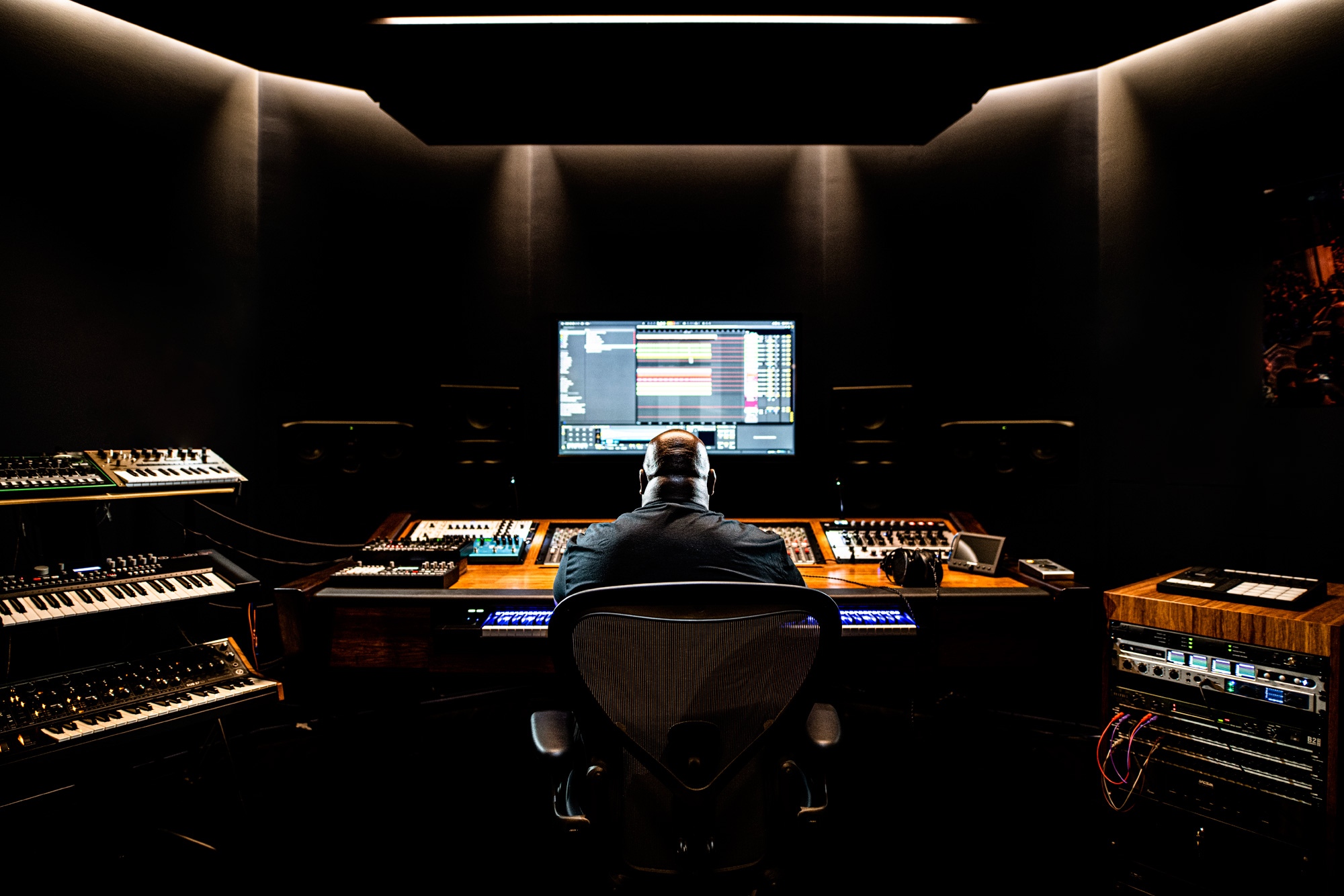
Your Mysteryland show was your first live show since 2011, right?
Yes. When I made my album, 'All Roads Lead To The Dancefloor', every record on it had a live element. Whether it's sax, percussion, vocalists. I did the album with the premise of taking that live. Once I finished the album, I took it to two or three different places in Australia just to road test it and see how it would go down with the artists, which was absolutely fine. The biggest problem I had was uprooting those artists to take it back into Europe and beyond. It would have taken a major record label to have taken this on because to move around the amount of people that I needed the cost was too phenomenal. To the point where it wasn't going to be worth doing.
Before that, I did a thing called The Carl Cox Concept because I had made an album and I wanted to take it out on tour. My biggest problem then was that my popularity as a DJ was so extensive, and to take on the live show, as well, was like battling between two elements. I had to basically do one or the other. I decided to DJ and drop the live. Can you imagine, over twenty-five years I've been wanting to do this. Now, because of the pandemic, I've got this time to go in the studio, pick my stuff up and go, 'Right, here we go.'
And you have everything you need at home in order to facilitate that?
100 per cent. I actually had it ten years ago when I bought all of the equipment to go live. Once I had done that, the equipment just stayed in the room not being touched. It really was just sitting here, and I thought, 'Hmm, I still have that live stuff. Why don't I just connect that and see what happens?'. So, Christopher Coe, who is my co-partner in Awesome Soundwave, is a live electronic music artist. When he came to me three years ago with his conceptual album, ‘MNTNS Of SLNC’, he had a visual package and a music package. But he had no home for it whatsoever. I listened to the album and thought, 'This is really cool, but I don't have anywhere to release it.’ I looked at him and said, 'Do you want to go halves at creating a record label and I can put your music out?'. He nearly cried; he was in tears.
Read this next: Carl Cox - "Police used to tap my phone"
My idea was to start this record label, do our streaming shows from our studio with our live music artists, and then have promoters who will take on the concept of me, Christopher and other live music artists from the label. It was fantastic to have this opportunity to think outside of the box for a little bit and show people what else is going on out there. So, everyone started getting really excited and the response was really amazing. We were going to take it on tour and then bam! Pandemic. I came home, and Christopher has been working in my studio and we were thinking, ‘What do we do now?’ Well, if I go right of my house into my garage, half of it is all of my records. Over 150,000 of them. I'm sitting here watching T.V and I'm like, 'I'm going to go get my turntables out, I'm going to go grab a few records and I'm just going to play them and do a Facebook Live and see what happens'.
Have you rediscovered any records since returning to the turntables for Cabin Fever? Any records that evoke really strong memories?
Oh man, there are so many. I've played hip hop, I've played reggae, soca, calypso, hard techno, I did my first label showcase with Bush Records, I showcased 'F.A.C.T.', which was one of my biggest-selling compilation albums. When I mixed it the first time it was all done live with no sync. So, I replicated that again this time. That was the show that just elevated Cabin Fever because a lot of people were like, 'He's going to do 'F.A.C.T.' live!'. I was like, 'Shit, what have I put myself in for! I haven't done this for ages!’
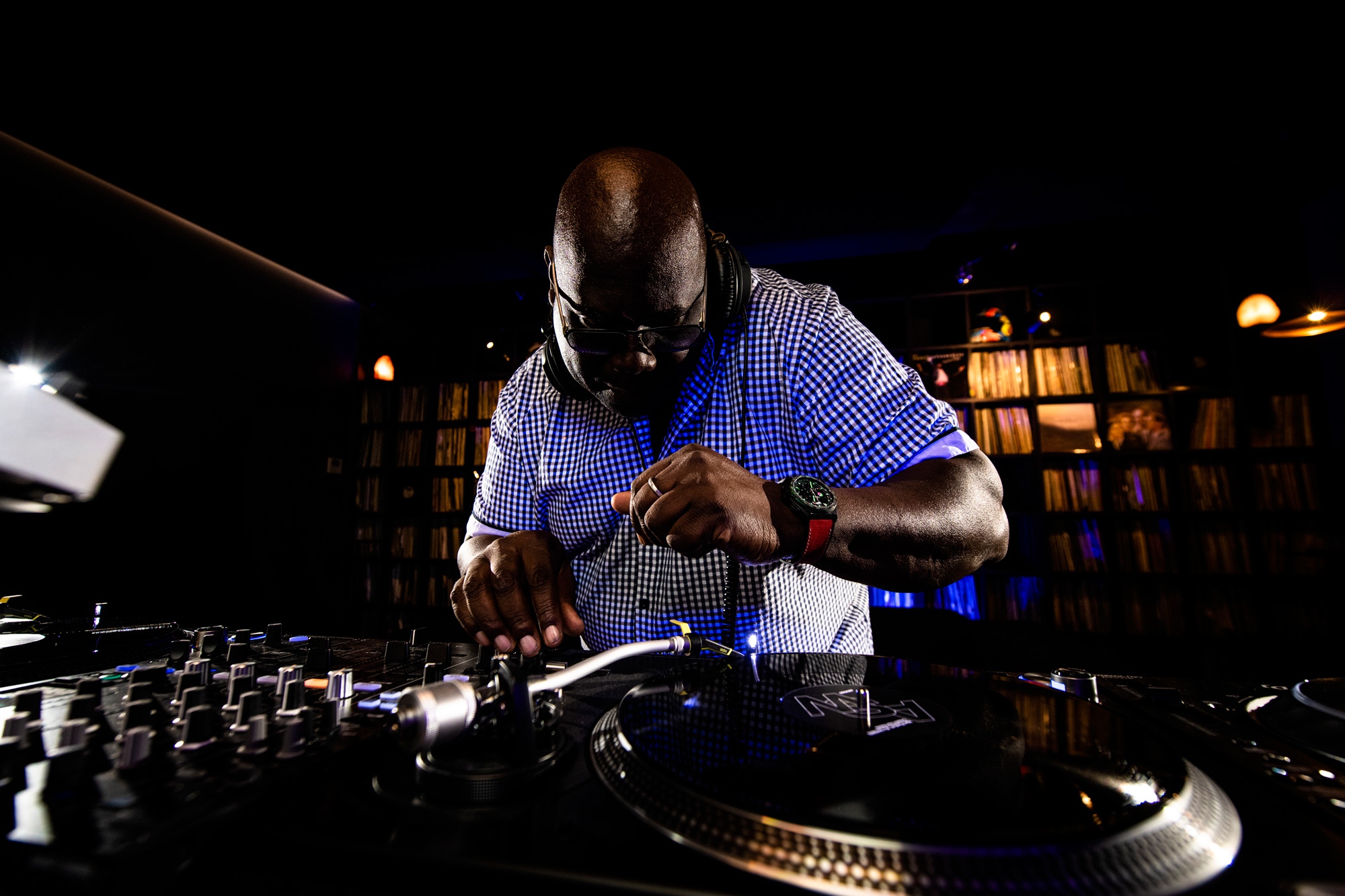
You had a superclub-themed show that focused on the mid/late 90s and early 00s. Would you say that’s an era you look to for inspiration or one that holds something special for you?
I think so, because all of these years of music and the evolution of the music [then]. It changed from rave to 90s techno music to d'n'b to happy hardcore to progressive sounds to handbag house – the bloody list goes on! When it was the era of the superclubs, because we couldn't do raves anymore, the sound had basically been homed in. Jon Pleased Wimmin, Jeremy Healy, Sasha & Digweed, of course, Paul Oakenfold, Dave Seaman; all of these guys. They were just homing in the sound of the superclubs. Italian piano house, progressive, the Renaissance sound, Golden, Cream Liverpool, it was just unbelievable. I was a part of the circuit of DJs going around the country playing these UK superclubs. It was a moment in time that showed how powerful the scene was even at that time, because the reaction of not doing any more rave events was why superclubs like Gatecrasher exist.
How did it feel at the time to be part of that shift from raves and unlicensed events to these big superclub events? On reflection, did it feel like there was change in the air?
If the government allowed the raves to continue, we probably wouldn't have had the superclub. The raves were a reaction to clubs in the first place. Clubs finished at 2am in the morning. You'd have a pint and a fight and kebab, and you'd be home by 3am or 4am. Whereas with the rave scene, you'd be waiting for the sun to come up. And when it did come up, you were still going until 8am or 9am. The superclubs had licenses until at least 6am in the morning, so even if you weren't getting what you were getting from the rave scene because it was going down, you were still kind of getting what you wanted (in terms of going out) from these clubs. The whole experience was just phenomenal. I would go to Liverpool, get to the front door at Nation for Cream, you could feel the doors vibrating and the heat just pouring out. Queues all the way back. I'd be going past with my boys and my record box and everyone's like, 'Carl Cox is here!' and I would just feel that energy. I mean, you could never do that today – social distancing, it just wouldn't exist! I used to go in, turn left into the Annexe Room and it would be like tribal house, Strictly Rhythm stuff, really good sound. It would just be pumping. It was like, ‘Yeah, this is what's going on, this is what we have in the UK’ and I feel very proud about that.
Read this next: Listen to Carl Cox's first new track for two years
It seems like we've had a revival of bigger clubs and club nights, like Warehouse Project or Printworks here in the UK, where the event is almost a festival itself, one that takes place over the course of a night. What do you think will be the next trend we see in the club and festival circuit?
The thing is, after what's happened here it's a reset, we need to go back to zero. We have to go back to the small clubs again. We won't be able to have the expanse of what we used to have back in the day – and I'm going to say back in the day because in another year or so, we aren't going to get back to what it used to be like. We can't have big superclubs with two thousand people in them, it's impossible. For the DJ, performing in such a confined way, you just lose the whole energy and the whole feeling of what it used to be like. It doesn't work. So, it's a reset. Let’s just get it back to where it used to be and start again. We know what we can do now. It's not our first rodeo. We go from small clubs, to semi-big clubs, then back to where we were, then back to festivals. When I first did Dance Valley in Holland it started off with about five thousand people, the next thing I knew, after about four or five years, it was up to ninety thousand people. So, it happens, and it can happen again. But the Covid-19 restrictions, and what's going to happen eventually with the recession and people spending and how they feel about being around other people, have a massive impact on what we do next and also how we do it.
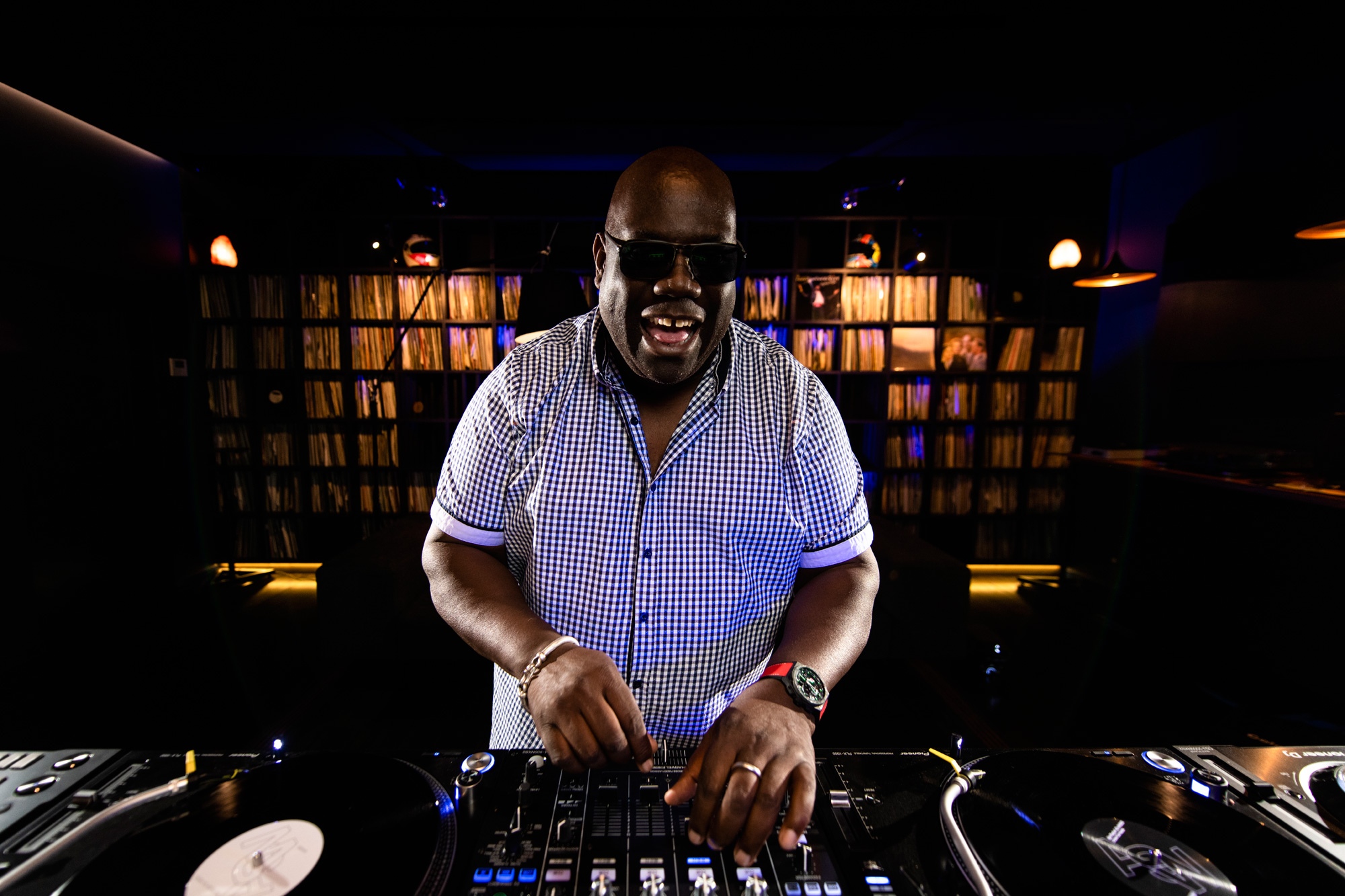
Are there any elements from the rave era we could take and emulate when things start returning?
I think what we have to do really is play the waiting game and be patient. If we go out there now, nobody is going to be happy about it. It’s irresponsible to be out there at the moment based on how everyone is trying to do the right thing to get past this. Having a party in a pandemic, it doesn't make any sense whatsoever. People are still suffering from this and we aren't out of yet. This isn't a Steven Spielberg movie called Panic, you know, we are in it and we have to be responsible enough to know that being out there at the moment isn't the right thing. Everyone is frustrated. Everyone wants to go out and start partying. Everyone wants to have the best time possible. Everyone wants to get back into it, jumping up and down on your mates’ shoulders and going crazy, but this is the long game. If you are really into it, you'll wait. If you are not into it and you just want to react or act out, it's going to be the very thing that makes it worse. Meaning it will take longer to come back because of it.
How's it been in Melbourne during all of this?
Well I live in the suburbs. It's had an impact on people's social way of life. I have my own cafe here in a place called Cape Woolamai which is on Phillip Island and I started doing this four years ago. It's called Inline Four Cafe, Carl Cox Motorsports. We were doing well and as we were getting into year three: pandemic. So closed shop, we can't do takeaways, staff have gone, everyone has gone. It's been shut since March. Now, we are going into the summer and we usually open up in September but it's just not happening.
I've found this new love for cooking. If I wasn't a DJ, I'd be a chef. I've always said that. But also, I've always treated this house like my holiday home and not my home home, but now it's become that as I've been here since March. I've seen it go from Stage 2 lockdown, to Stage 3, to Stage 4. Now, Stage 4 lockdown is for six weeks. Can you imagine when we got that notice to say that was going to happen? Now we have a curfew, we have to be in by eight o'clock. So, you've got a person who's been out and about for forty years straight, never seen a Saturday night in, and now I've seen more Saturday's [in] in my life than I've ever seen before.
Read this next: Carl Cox live from the Space Terrace
Is there anything that you’ll take from this slower pace of life? Things you'll continue when normal life resumes?
Self discovery, for a start. I'm starting to lose a bit of weight now and eating at decent times and all that sort of stuff. I feel better about myself. My head is clearer. One of the saddest things for being here in Australia is missing my family and friends back in the UK and Europe. I usually have a really amazing birthday – I'm a summer baby, so I always have a birthday in Ibiza, and one in the UK. I was sitting here, watching telly and it was like, 'Oh, well, happy birthday to me!' So, my friends actually did a really awesome thing, because I'm actually with my tour manager Ian, he says, 'Listen, I've arranged a Zoom meeting for you with a couple of friends who want to say hello’. I put it on, and all my friends turned up! It was brilliant.
It's changed all aspects of my life. I've reflected on everything that I've done. I look back on everything and think, 'I can't believe I have done all of this' even to this very day. And I'm still doing all of this, even though I'm here in Melbourne. It's unbelievable when the merry-go-round stops, and you have time to reflect on what you've done. I believe that even if I never DJ-d out there ever again, I think I've made my mark.
I think it's safe to say that.
And to be happy by it, at the end of the day. Nobody saw this coming. It just went bam! And you know when you get to an airport and you are going somewhere and there's a storm coming in and you see flights get cancelled continuously? That was like my events. My last event was in Houston, Texas, at a club called Stereo Live. I was told by my agent that it would be my last party. I was only booked to play two hours, and I said, 'Well, if this is going to be my last party, and you've got an open-end on this club, I'm going as long as you want me!'. So, I did seven hours straight.
When was the last time before that you played such an extended set?
The last major set was [at] Space where I played vinyl and digital. I wanted to leave a mark on playing the vinyl because a lot of music you can't get on digital and, at the time, the history of me playing Space was always on vinyl anyway. From when I started playing at 10pm or 10:30pm until I finished at 8am, it was unbelievable. The energy of the night. I never normally play in the Discoteca until 3am, but because I said I was going to do the whole night (we usually open the doors at midnight and I go from midnight to 8am), but because there were so many people outside by 10:30pm it was packed. But I didn't want to give them everything at that time, I wanted to just build it up and build it up and get to 3am and unleash hell! People were just chugging away, and I was just pulling these records out, people were still chugging away and then I'd play 'Love Story' by Layo & Bushwacka and everyone's in tears and crying. It was phenomenal.
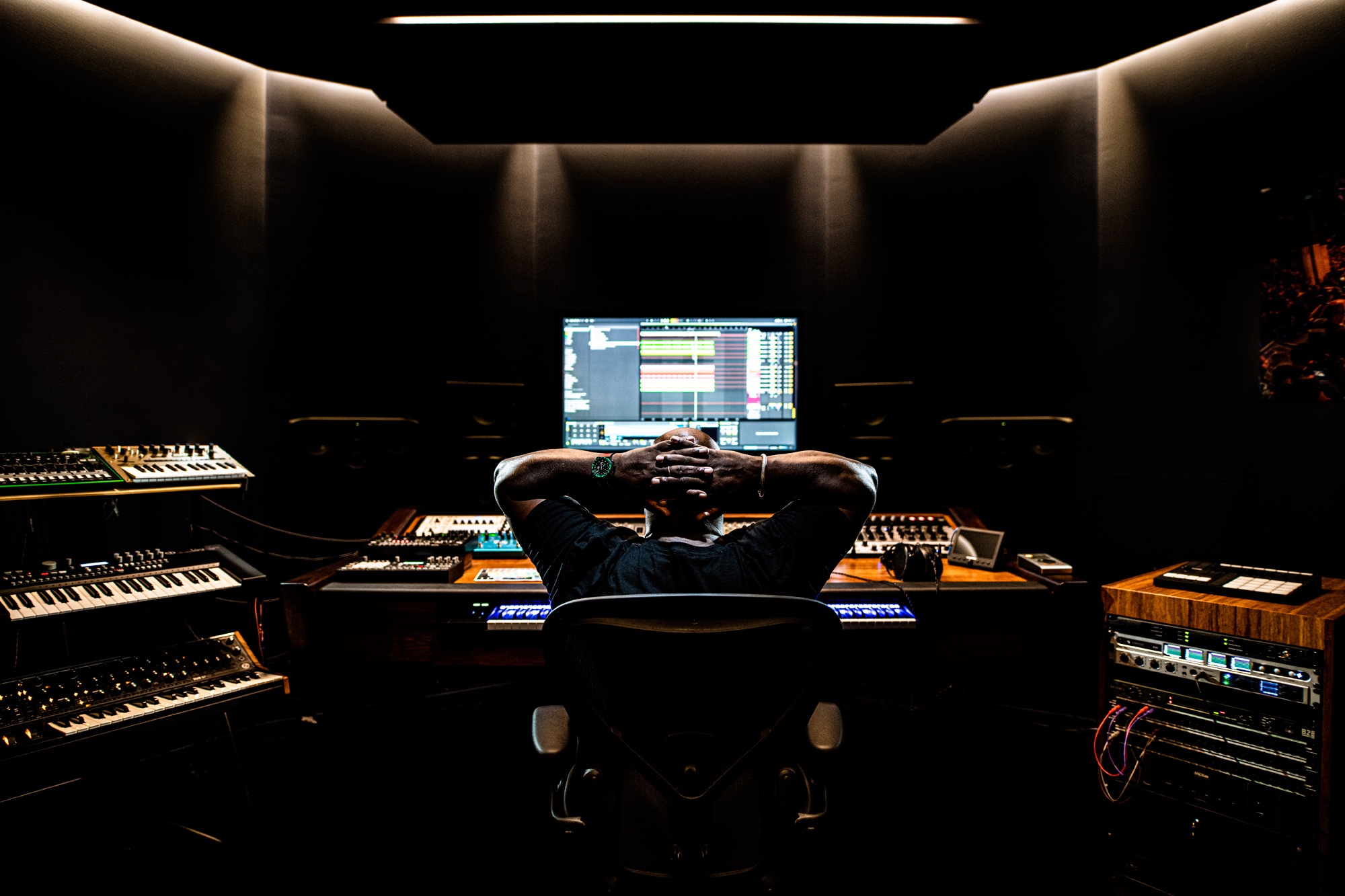
You mentioned on one of your Cabin Fever shows that 1990-1994 might have been a prime era for you.
It was. There was no judgement on how you danced, who you danced with, what music you listened to. I listen to my sets from that time and they were very ravey, very tough, bass-heavy, jungle sounds, piano tunes and you would just know there would be a hands-in-the-air moment and people blowing on their whistles as hard as they could, sweating, no mobile phones...yes, it was the best time. It's hard to find the documentation of that because there weren't so many cameras around. You just carried the memories of what you experienced on that night until the next time. Every time I stepped out of my house with my records and I went to Stoke-On-Trent or somewhere, I would just walk into the atmosphere. I'd play two records and people would be losing their minds. I was just this young guy from a place called Carshalton in Surrey, and I was driving to all of these places and two thousand people would be screaming my name ready for me to lay it down. It was a moment for me. I never took anything for granted. I felt that each party that I played was my first ever party. After this, it started getting organised and the music changed, and people started dressing up a bit more. The beats were slower. All this had started to happen and you're losing the edge of rave and you're getting more into stylised partying. I still wanted to take them to church, but I had to understand that that time was then, and this was now, in order to continue doing what I was doing at the level I was doing it at.
What can DJs and producers do to survive this moment and continue their careers when touring and gigs and so on return?
At the moment we don't have a dancefloor. So, there is no point making hit records for the dancefloor. The idea is to make music that you like to make. Don't make it for any specific reason. That's what a lot of producers were doing; making this sound so they can get bookings and therefore they're going to get paid and end up on a Top 100 list. We have the time to redevelop the sound of what we like, which is obviously dance music, be it trap, grime, techno, d'n'b, whatever. Why don't you just mix all of them together and make one record out of all of them and throw that to the wall? This is a great time for creativity now. Something is going to come out of it in the sense that you've made a point, a statement, about what's happened to you individually.
Read this next: Carl Cox b2b Fatboy Slim at the Saatchi gallery
Like you and your live music?
Yes, because that's a reaction. If I was still on the treadmill of doing my events, I wouldn't have the time to do live. I don't have the time to create these cords, it just wouldn't happen. Now, after speaking with you, I actually feel quite buzzed. I'm going to go in there and make some basslines and stuff. I think for young people right now though, who want to make music, who want to be DJs, who want to be live artists, making music is the very best you can do because you can make whatever you want, now. You can put it online whenever you want, too. Just do it. Don't even think about it. That's what I'm doing, and I've been around the block a few times!
Carl recently played as part of Awesome Soundwave Live III, restream here
‘Carl Cox mixes Awesome Soundwave’ is out now on Awesome Soundwave
Jasmine Kent-Smith is a freelance journalist and regular contributor to Mixmag. Follow her on Twitter
Read this next: Get the best of Mixmag direct to your Facebook DMs


